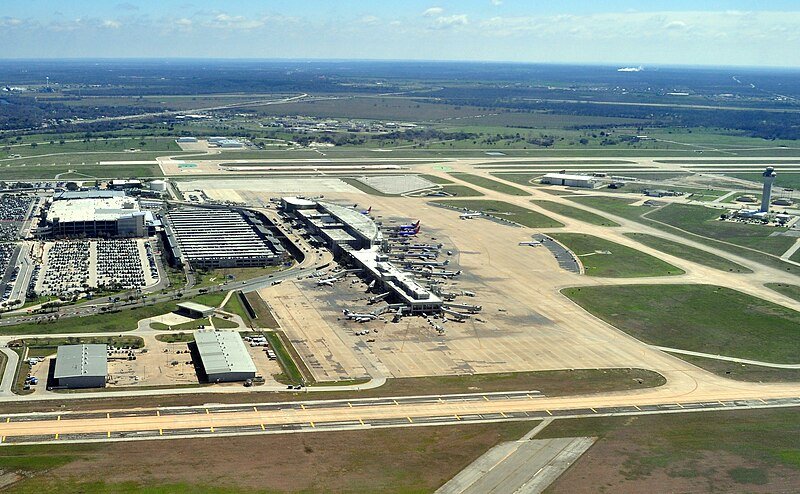In recent weeks, the Abia Airport project in Nigeria has become a hotbed of controversy, drawing attention from local communities, activists, and political observers alike. The project, which is poised to be a major infrastructural development for Abia State, has sparked significant tensions between the state government and landowners in the Nsulu area. These tensions center on issues of land acquisition, compensation, and the lack of transparency in the entire process.
The Beginning of The Wahla
The proposed Abia Airport is part of the state government’s broader vision to boost economic development and enhance connectivity within the region. As one of Nigeria’s less developed areas in terms of transportation infrastructure, an airport is seen as a game-changer that could potentially transform Abia’s economy by attracting investments, improving trade, and fostering tourism. The project has garnered support from certain segments of the population who view it as a positive step toward modernizing the state.
However, the ambitious plan has encountered fierce opposition, particularly from the Nsulu community, which is directly impacted by the construction of the airport. The central issue lies in the land acquisition process, with allegations of fraud, coercion, and unfair compensation.
Land Acquisition and Compensation Issues
The manner in which the Abia State government has gone about acquiring land for the airport is a big issue. Nsulu landowners and community leaders have claimed that the process has been less than
transparent. According to the affected landowners, they were either not adequately informed about the government’s plans or were misled into relinquishing their land for below-market value. In some cases, community leaders have accused the government of using forceful tactics to procure the land, sidestepping legal and ethical protocols.
The primary grievance centers on compensation, with many claiming that they were not fairly compensated for their properties. For the residents of Nsulu, land is more than just a commodity—it is a vital part of their culture, livelihood, and identity. Therefore, any attempt to dispossess them of their land without just compensation is seen as an infringement on their rights. The community’s demands for the dissolution of the current government-appointed negotiation team further reflects their lack of trust in the process.
This ongoing dispute has heightened tensions in the region, and several community leaders have publicly called for the state government to reevaluate its approach. They argue that without proper transparency in the land acquisition and compensation process, the project risks alienating the very people it is supposed to benefit.
The Political and Social Implications
The controversy surrounding the Abia Airport project is not only a matter of land acquisition but also a reflection of broader political and social dynamics in the state. The state’s governor, Okezie Ikpeazu, and his administration have emphasized the importance of infrastructure development, which they argue will benefit the entire state in the long run. However, this ambitious vision has been overshadowed by local unrest, as community members feel sidelined in the decision-making process.
The local resistance has sparked debates about the centralization of power in the hands of the state government and the neglect of the grassroots. In many instances, such development projects are pushed forward without adequate consultation with affected communities, leading to a disconnect between political elites and local populations. For the people of Nsulu, this is not merely about land; it is about their right to be heard and their entitlement to fair treatment.
Moreover, the controversy highlights an ongoing issue within Nigeria’s development framework: the lack of inclusivity and transparency in governmental projects. It reflects a broader challenge within the Nigerian government, where top-down decision-making often results in the marginalization of local communities.
Wider Concerns: The Viability of New Airports
While the controversy continues to unfold, another critical aspect of the Abia Airport project is its long-term viability. Nigeria has seen a significant number of new airport developments in recent years, yet questions remain about their economic feasibility. In 2023, Nigeria’s air passenger numbers saw a steep decline to just 15.89 million, raising doubts about whether the country truly needs additional airports. With economic challenges like inflation, high airfares, and limited disposable income, there is concern that many of these new airports, including the one in Abia, may not attract the expected volume of passengers.
The question of demand for the Abia Airport thus becomes a crucial one. Will the airport generate enough business and serve the needs of the population, or will it become another white elephant project, an expensive infrastructure that fails to deliver the promised benefits? Such concerns need to be addressed by the government before further resources are committed.
The Way Forward
For the Abia Airport project to move forward successfully, it is imperative that the state government addresses the concerns of the Nsulu community. Transparency in the land acquisition process, fair compensation for affected landowners, and clear communication are essential steps toward rebuilding trust and ensuring that the project has the support of the local population.
In addition, the government must assess the long-term viability of the airport, considering factors such as passenger demand and economic sustainability. There must be a careful balance between infrastructure development and the realities of the local economy.
If you enjoyed this article, click here to read more informative posts, also check us out on Instagram for fun and engaging content.
















